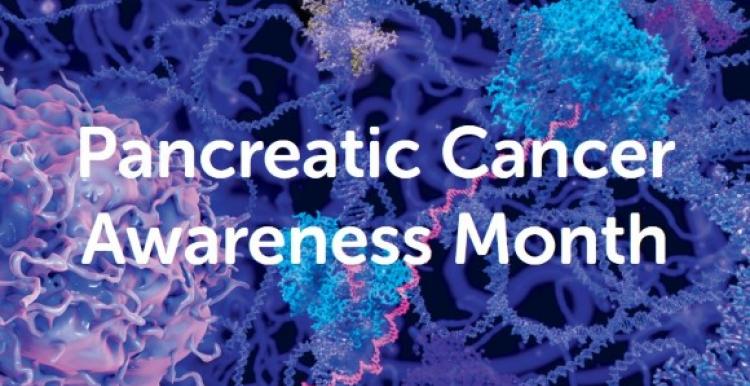Learn about pancreatic cancer

What is pancreatic cancer?
The pancreas is a large gland behind your stomach, at the back of the tummy (abdomen). It is surrounded by several important organs, such as the liver, and also by large blood vessels. It helps you make enzymes, which break down food and aid digestion, and it makes hormones which controls sugar levels in the blood.
Pancreatic cancer develops when cells in the pancreas grow out of control, forming a lump.
Signs and symptoms of pancreatic cancer
Symptoms of pancreatic cancer can vary for each individual, but some of the most common symptoms include:
- Tummy or back pain
- Unexplained weight loss or loss of appetite
- Indigestion
- Change to bowel habits (e.g. diarrhea, constipation, steatorhhoea)
- Jaundice (yellow skin/eyes, itchy skin)
- Feeling or being sick
- Feeling very tired
- Problems digesting food
What to do if you're worried
If you have jaundice, go to your GP or A&E.
If you have any other symptoms, you don't know why you have them, and they last four weeks or more, go to your GP.
Give your GP a good description of your symptoms. Mention anything unusual, even if you're not sure it's relevant. If your GP asks you to come back at a later date, make sure you do.
If your symptoms get worse or you develop any new symptoms, you should always see your GP. If your symptoms don’t improve, go back to your GP until you get a diagnosis, or you are sent for tests to find out what’s causing them.
Further support
- Pancreatic Cancer UK - a pancreatic cancer charity that raises awareness for the cancer and provides support to anyone affected by it
- Macmillan Cancer Support
- Cancer Research UK


